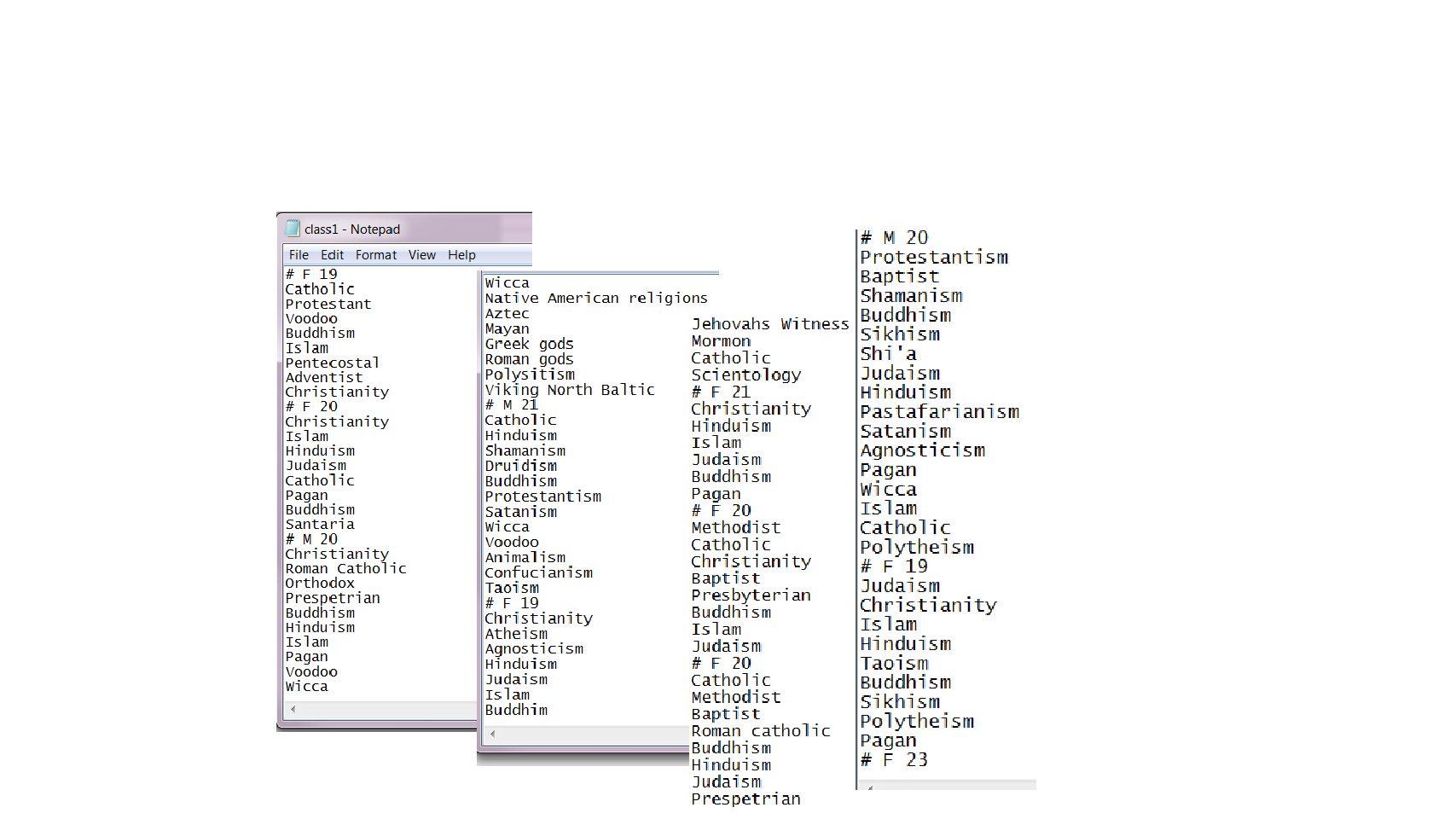Lauren Miller Griffith
February 7, 2015
Let me start by saying that coffee is a godsend and I have no idea how I made it through my first semester on the tenure track without it. Why would I give up such an essential part of my morning (and afternoon…) routine you might ask? The answer is the cooing, squirming, and occasionally screaming, bundle of joy that is currently blissfully asleep in his crib. Our son made his big debut exactly 4 weeks into the semester. I had plenty of time to work on a plan for dealing with my maternity leave, but he still decided to throw a wrench in my plans by showing up a week early. I have been very lucky to have the support of wonderful colleagues who have encouraged me to take all of the time off that I need. I know that others aren’t so lucky. I am voluntarily making the decision to start teaching again after only 3 weeks of leave, which I know some people will disagree with, but for our family and our circumstances it works. This means that we didn’t have to hire a replacement for me, but it also raised the question of how I would handle my classes during this 3-week stretch. This experience has prompted me to think about what any faculty member can do to manage his or her classes during an extended absence, whether that was expected (like mine) or completely unanticipated as would be the case with a sudden illness or family emergency. This is of course a partial list that comes out of my own personal experience, so I’d encourage people to share their own ideas in the comment stream.
- If you have time to plan your absence…
- Create podcasts of the lectures you were planning to give during your absence. A podcast allows you to record your own voice along with a video recording of whatever is on your computer’s screen. For example, you can record yourself giving a lecture as you play a PowerPoint presentation. These are actually pretty easy to create, even for a technophobe like myself. I like to make a script to go along with the PowerPoint I was planning on using for that lecture so that my presentation is a bit smoother and more polished than it would be if I were doing it spontaneously. Then this video can be uploaded into your learning management system (Blackboard, Moodle, Sakai, etc.). I like to pair these with an automatically graded quiz to ensure that students actually watch the videos. Your IT department should be able to show you how to do all of this. Alternatively, you could have a colleague or teaching assistant show the podcast in class and then facilitate a discussion about the content after its conclusion or pause the recording at specific points to have the students complete active learning assignments like think-pair-share, response papers, small-group brainstorming, etc. I know I’m a habitual over-planner, but if I could do things over again, I also would have prepared podcasts for the week leading up to my due date just in case he decided to come early.
- Invite a guest lecturer or two to share perspectives with your students that you would be unable to provide. The key to making this a positive experience is to make sure that the lecture is meaningful and that students don’t just see this as the academic equivalent of a babysitter. I invited graduate students from a nearby research university to lecture and in exchange have offered to give them advice on working in a small liberal arts environment and/or review job application materials. In preparation for your guest’s visit, make sure he or she has access to a parking pass and knows exactly where to go for the lecture. These small courtesies are easy to forget when you are away from campus.
- Think about what students can do out of the classroom to enrich their learning experience. One of my courses is run as a service-learning course. This is a pedagogical decision I made well before becoming pregnant, but it works handily in conjunction with my leave. Students are given a few days “off” from regular course work in compensation for the time they are spending working in service of our community partner.
- Show the occasional film, but make sure they are strategically selected and used sparingly so the students don’t become bored or see them as busy work.
- Make sure your support team has all of the necessary information on how your courses will be covered. I prepared a document listing every class I would miss along with how that class would be covered and who was the person responsible for covering that course. I sent that document to everyone in my department plus everyone who would be involved in covering a class.
- Set reminders for yourself in your calendar. Two of my classes will be taking their midterm exams while I’m away, and I don’t want them to forget about those obligations so I set alarms to remind myself to send emails encouraging them to study. If your learning management system allows you to draft emails and send them at a predetermined date and time, this is an even better option.
- Request the class times and locations that will best fit your circumstances. Granted, this is a privilege that not everyone has, but if your colleagues are supportive, ask for some flexibility. For example, my senior seminar course only has three students this term, so I received permission from the dean to hold class in my home. Because we live on campus, this is very feasible for the students and buys me an extra hour in the morning when I don’t need to arrange childcare. Plus…there’s unlimited coffee!
- If your absence is unexpected…
- It’s not a bad idea to have one or two backup lessons that can be implemented with minimal planning. This could be a film – and I like to have a note-taking guide prepared to go along with most of the films I show, especially when I’m not in class, to make sure that the students are really getting the key points. Alternatively, this could be a podcast that you have prepared in advance and can release to the students as soon as you find out that you will have to be absent.
- While it’s not as satisfying as the real thing, there are some things you can do to ‘make up’ for a missed discussion period. I generally know what questions I’m planning to ask during my discussion sessions, so when I had to unexpectedly miss the discussion of an ethnography we’ve been reading, I posted the questions to our learning management system and told students to review these on their own. I also encourage students to submit questions that they have to me about our readings via email and I promise them that every few days I will post a FAQ page that addresses their questions. The same thing could be done with a discussion board if you prefer that option.
For dedicated and conscientious teachers, missing several days of instruction time can be anxiety provoking. Yet I’m learning that there are actually some things in life that are more important than work (and those who know me are probably thinking that a certain lake of fire has just frozen over). I’m also finding that my students tend to agree…and have been beyond supportive at every point in this journey. And while I will continue to advocate for the importance of face-to-face learning, especially at a small liberal arts college like Hanover, I believe these strategies are helping us all cope with some unusual circumstances.
Lauren Miller Griffith, Ph.D. is an assistant professor of anthropology at Hanover College. Her research focuses on the intersections of performance, tourism, and education in Brazil, Belize, and the U.S. Specifically, she focuses on the Afro-Brazilian martial art capoeira and how non-Brazilian practitioners use travel to the source of capoeira’s birth to increase their legitimacy within this genre. Lauren’s current interests include the link between tourism and conservation education in Belize. She is particularly interested in how landscapes become encoded with memories and how this specificity of place can foster intercultural competence in “sun, sand, and sea” tourists.




